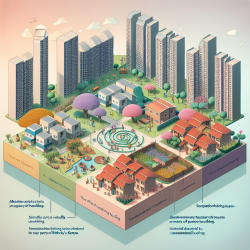The COVID-19 pandemic has highlighted the crucial role of frontline workers in managing public health emergencies. However, this responsibility often comes with significant psychological impacts. As a practitioner, enhancing your skills to support these workers is vital. This blog post explores effective strategies derived from recent research to help you improve your practice and encourage further exploration into this critical area.
Understanding the Psychological Impacts
Frontline workers face numerous challenges during public health emergencies, including anxiety, burnout, depression, and Post Traumatic Stress Disorder (PTSD). The recent systematic review titled "What are effective strategies to respond to the psychological impacts of working on the frontlines of a public health emergency?" provides valuable insights into interventions that can mitigate these impacts.
Key Findings from the Research
- Psychotherapy: This intervention shows the strongest effect in reducing negative mental health outcomes. Cognitive Behavioral Therapy (CBT) and Acceptance and Commitment Therapy (ACT) are particularly effective in decreasing symptoms of anxiety, depression, and PTSD.
- Psychoeducation: These interventions can effectively increase resilience among healthcare workers. Programs that include stress management techniques and self-management strategies offer promising results.
- Mind–Body Interventions: Practices such as meditation, yoga, and breathing exercises have shown substantial evidence for improving quality of life and reducing stress-related symptoms.
- Organizational Interventions: While fewer in number, these interventions highlight the importance of systemic support through training, resource allocation, and mental health hubs within organizations.
Implementing Effective Strategies
To enhance your skills as a practitioner, consider integrating these strategies into your practice:
- Diversify Interventions: Employ a combination of psychotherapy, psychoeducation, and mind-body practices tailored to individual needs.
- Create Supportive Environments: Advocate for organizational changes that prioritize mental health resources and support systems for frontline workers.
- Pursue Further Research: Stay informed about emerging studies and evidence-based practices by attending conferences, webinars, and reading relevant publications.
- Cultural Competency: Ensure that interventions are culturally sensitive and accessible to diverse populations within the workforce.
The Importance of Ongoing Learning
The landscape of public health emergencies is ever-changing. As a practitioner, continuous learning is essential to adapt to new challenges effectively. Engaging with research like this not only enhances your skills but also empowers you to provide better support to those on the frontlines.
If you're interested in delving deeper into the original research paper that inspired these insights, please follow this link: What are effective strategies to respond to the psychological impacts of working on the frontlines of a public health emergency?










